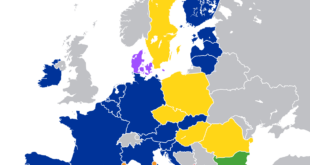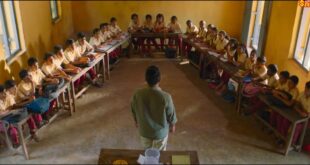- The European Commission (EC), the European Union’s executive arm, proposed a draft law for halving pesticideuse across Europe by 2030.
- The Intergovernmental Panel on Climate Change (IPCC) in its sixth assessment has called for urgent restoration of degraded ecosystems to mitigate climate change.
- The Glasgow climate pact too had underlined the significance of natural ecosystems for climate mitigation and adaptation.
- The European Union has not been successful in halting the loss of biodiversity between 2011 and 2020 according to the EU biodiversity strategy, which had voluntary target to restore at least 15 % of degraded ecosystems by 2020.
Draft law
- The proposal sets multiple binding restoration targets and obligations across a broad range of ecosystems. It includes the overarching objective for area-based restoration measures on 20 % of the EU land and sea area by 2030.
- Natural and semi-natural biodiversity ecosystems — wetlands, forests, grasslands, river and lakes and even dunes — will be improved and re-established on a large scale.
- It seeks to dismantle big dams to make rivers free-flowing, among other things.
- The use and risk of chemical pesticides will be reduced 50 % by 2030 to reverse the decline of bees, butterflies, bumblebees, hoverflies and other pollinator populations by 2030.
- The proposal aims to reduce loss of green urban spaces, so that there is no net loss of green urban spaces by 2030. In fact, the target is to ensure 5 % increase in these spaces by 2050.
- There must be an increase in at least 10 % of tree canopy cover in all cities and towns, the proposal says.
- The proposal has set a target of restoring 25,000 km of rivers to a free-flowing state by 2030. For this, the barriers that prevent or obstruct the connectivity of surface waters will be identified and removed.
Pesticide, its Usage and Issues
- Chemical compounds that are employed to eliminate pest organisms are called pesticides.
- These are used to kill or repel pests like rodents (rodenticides), insects (insecticides), weeds (herbicides) and fungi (fungicides).
- They are used in public health management to eliminate disease carrying vectors like mosquitoes.
- They are used in agriculture to eliminate pests that damage crop plants.
Issues:
- Experts believe that chronic low-level pesticide exposure is associated with a broad range of nervous system symptoms such as headache, fatigue, dizziness, tension, anger, depression, and impaired memory, Parkinson’s disease, and Alzheimer’s disease, among others.
- Pesticides go up the food chain by working their way through the environment and into the soil or the water systems after which they are eaten by aquatic animals or plants and ultimately humans. This process is called Biomagnification.
- Continued use of pesticides for decades has contributed significantly to the current ecological, economic and existential crisis of the Indian agriculture sector.
- Although agriculture is a state subject producing, education and research are governed under the Insecticides Act, 1968 which is a central Act, and hence state governments have no direct role in amending it.
- It is due to this that an estimated 104 pesticides that are still produced/ used in India, that have been banned in two or more countries in the world.
Regulation for Pesticides in India:
- The Insecticides Act of 1968 covers the registration, manufacture and sale of pesticides in India.
- The experience s in administering this Act over the last five decades has exposed certain gaps. In this context, the union cabinet has recently approved the Pesticides Management Bill, 2020.
- The Bill regulates the business of pesticides and compensate farmers in case of losses from the use of agrochemicals.
SOURCE: THE HINDU,THE ECONOMIC TIMES,MINT
 Chinmaya IAS Academy – Current Affairs Chinmaya IAS Academy – Current Affairs
Chinmaya IAS Academy – Current Affairs Chinmaya IAS Academy – Current Affairs



